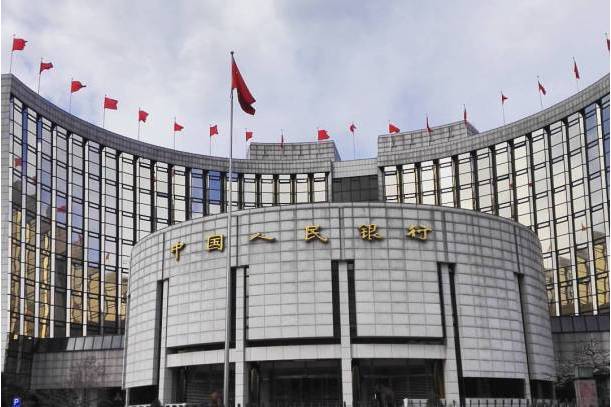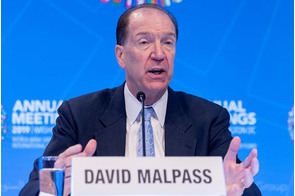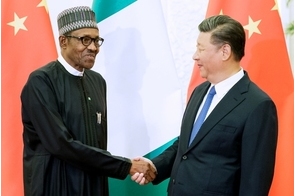Latest News
China’s secretive international lending practices revealed

News Highlight
China's state-owned lenders prohibit borrowers from restructuring their Chinese debts in coordination with other creditors.
A new report released on March 31, 2021, reveals previously unknown details about China – the world’s largest official creditor – and its lending practices to developing countries.
How China Lends, the new study and dataset by researchers from AidData at William & Mary, the Centre for Global Development (CGD), the Kiel Institute for the World Economy, and the Peterson Institute for International Economics, examined 100 Chinese loan contracts to 24 countries, many of which participate in the Belt and Road Initiative.
According to a note sent to Financial Nigeria by CGD, the study finds that “Chinese state-owned banks are muscular, commercially savvy lenders that use contracts to position themselves as ‘preferred creditors,’ seeking repayment ahead of other commercial and official lenders. They often do so by asking borrowers for an informal source of collateral — bank accounts with minimum cash balance requirements that lenders can seize in the event of default — and prohibiting borrowers from restructuring their Chinese debts in coordination with other creditors.”
According to Scott Morris, a Senior Fellow at CGD, “China has struck a cooperative tone on debt issues in the G20, but some of the provisions in these contracts clearly are at odds with the objectives of the Common Framework on debt that G20 ministers agreed to six months ago.”
“All the pitched arguments over China's foreign lending have played out in a fact vacuum,” said Georgetown Law Professor Anna Gelpern, a Nonresident Senior Fellow at the Peterson Institute for International Economics (PIIE), “with hardly any of China's debt contracts -- and precious few of other countries' bilateral contracts -- ever published or studied.”
The analysis is the first systematic evaluation of the legal terms of China’s foreign lending, and the newly published contract dataset, assembled by AidData, is the largest source of debt contracts between Chinese government lenders and developing country borrowers. These documents were difficult to access, but over a 36-month period AidData collated the contracts by conducting an in-depth review of the debt information management systems, official registers, and parliamentary websites of 200 borrower countries.
The researchers benchmarked the Chinese contracts against 142 publicly available contracts with other major lenders and they found several unusual features in Chinese contracts:
● China’s contracts contain unusually broad confidentiality clauses, which prevent borrowers from revealing the terms or sometimes even the existence of the loans. The researchers also found that China’s contracts have become more secretive over time, with a confidentiality clause in every contract in the dataset since 2014. These confidentiality restrictions hide loans from the people are bound to repay them via taxes.
● The contracts also contain provisions that position Chinese state-owned banks as senior creditors whose loans should be repaid on a priority basis. Nearly a third of the contracts required borrowing countries to maintain significant cash balances in bank or escrow accounts. These informal collateral arrangements put Chinese lenders at the front of the repayment line, since banks can simply dip into their borrower’s accounts to collect unpaid debts.
● China’s contracts also give it broad latitude to cancel loans or accelerate repayment if it disagrees with a borrower’s policies. For example, China Development Bank (CDB) treats termination of diplomatic relations with China as an “event of default”. Expansive cross-default and cross-cancellation provisions also provide Chinese lenders with more leverage over borrowers and other creditors than was previously understood.
According to Sebastian Horn, an economist at the Kiel Institute for the World Economy, another key finding of the study is that “Most Chinese loan contracts contain ‘No Paris Club’ clauses, which prohibit countries from restructuring Chinese loans on equal terms and in coordination with other creditors.” This approach to foreign lending effectively gives Beijing sole discretion to decide if, when, and how it will grant debt relief. Christoph Trebesch, also of the Kiel Institute, adds that “China’s practices complicate debt relief efforts in countries that are in financial distress due to the COVID-19 pandemic or other factors.”
The authors of How China Lends warn that restrictions on debt transparency make it difficult for citizens in borrower countries and creditor countries to hold their governments accountable, and call for public debt to be made public.
Brad Parks, AidData’s Executive Director and a co-author of the report, says that “by shielding their contractual arrangements from public scrutiny, Chinese state-owned banks have made it difficult for other lenders to know if they are positioning themselves at the front of the repayment line.” Hidden debts to China have also put developing countries -- with insufficient foreign currency to repay all of their outstanding obligations to foreign creditors -- in an equally challenging position. According to Parks, “non-Chinese creditors are increasingly reluctant to renegotiate repayment terms until they know more about China’s claims.”
Related News
Latest Blogs
- What Ould Tah’s tenure at BADEA reveals about his AfDB candidacy
- Implementation strategy crucial for the success of 12-4 education policy
- A senator’s suspension threatens the right of representation
- Tinubu’s promising revolution in infrastructure development
- Has Tinubu’s economic reform started working?
Most Popular News
- Artificial intelligence can help to reduce youth unemployment in Africa – ...
- Nigeria records $6.83 billion balance of payments surplus in 2024
- Tariffs stir inflation fears in US but offer targeted industry gains ...
- Tinubu appoints new Board Chair, Group CEO for NNPC Limited
- Soaring civil unrest worries companies and insurers, says Allianz
- CBN net reserve hits $23.1 billion, the highest in three years









